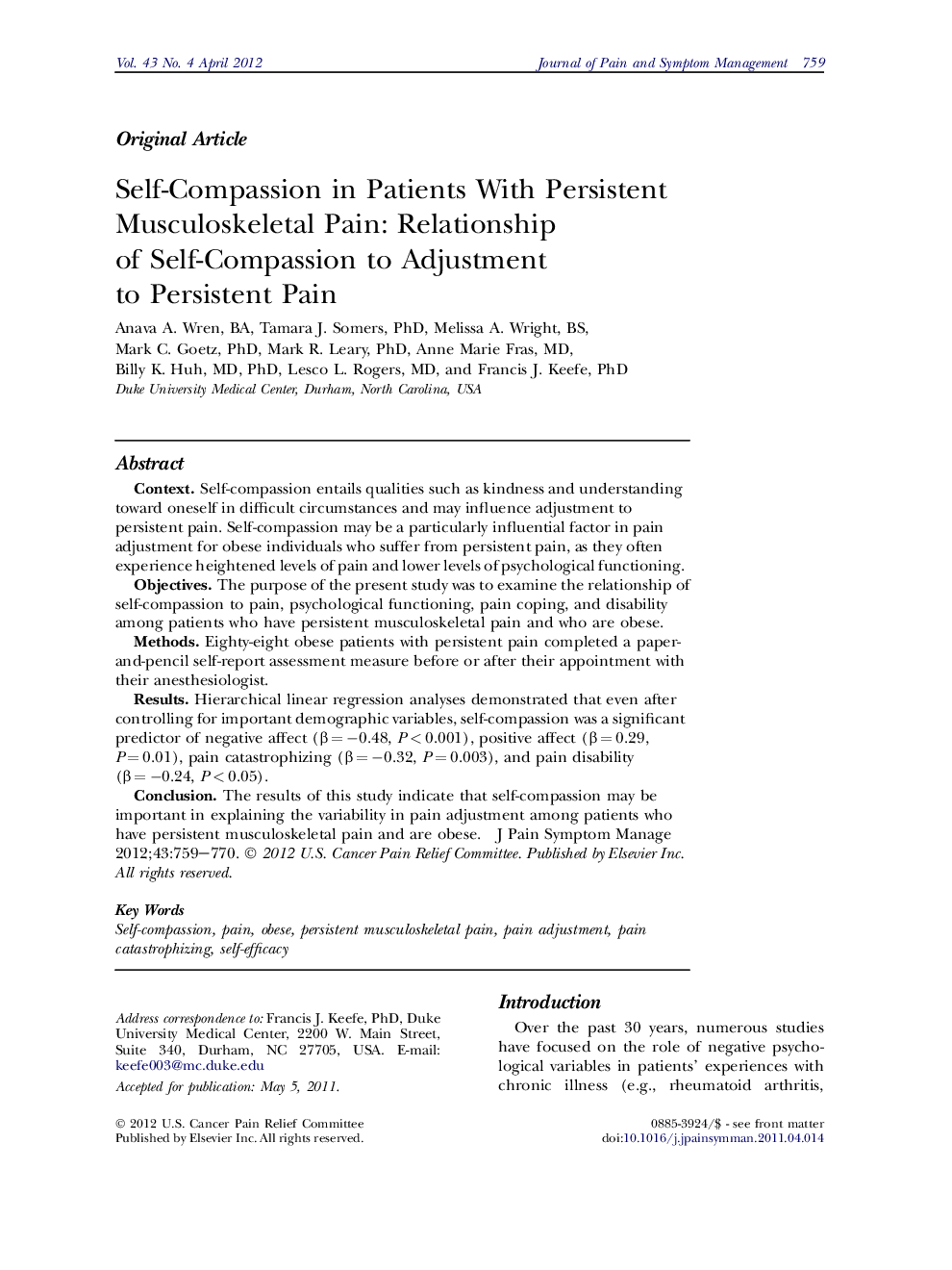| Article ID | Journal | Published Year | Pages | File Type |
|---|---|---|---|---|
| 2730141 | Journal of Pain and Symptom Management | 2012 | 12 Pages |
ContextSelf-compassion entails qualities such as kindness and understanding toward oneself in difficult circumstances and may influence adjustment to persistent pain. Self-compassion may be a particularly influential factor in pain adjustment for obese individuals who suffer from persistent pain, as they often experience heightened levels of pain and lower levels of psychological functioning.ObjectivesThe purpose of the present study was to examine the relationship of self-compassion to pain, psychological functioning, pain coping, and disability among patients who have persistent musculoskeletal pain and who are obese.MethodsEighty-eight obese patients with persistent pain completed a paper-and-pencil self-report assessment measure before or after their appointment with their anesthesiologist.ResultsHierarchical linear regression analyses demonstrated that even after controlling for important demographic variables, self-compassion was a significant predictor of negative affect (β = −0.48, P < 0.001), positive affect (β = 0.29, P = 0.01), pain catastrophizing (β = −0.32, P = 0.003), and pain disability (β = −0.24, P < 0.05).ConclusionThe results of this study indicate that self-compassion may be important in explaining the variability in pain adjustment among patients who have persistent musculoskeletal pain and are obese.
